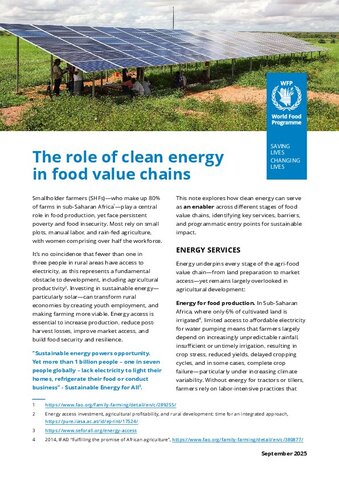
Clean energy plays a transformative role in food value chains, especially in sub-Saharan Africa where smallholder farmers are central to food production but often face poverty and food insecurity. Investing in sustainable energy, particularly solar, can revitalize rural economies by making farming more viable – creating employment opportunities for youth and improving food security and resilience. Energy access is crucial across all stages of the food value chain, from land preparation, harvesting, processing, preservation to market access. Although the initial investment in renewable energy technologies can be high, it can yield quick returns as it is more cost-effective and environmentally friendly than fossil fuels.
Designing effective energy-access programmes presents several challenges, particularly in fragile or underserved contexts where market systems often fail due to poverty, isolation and instability, making it difficult and costly to develop or revive local energy value chains. Sustainable energy programming requires the strengthening of existing delivery networks, collaboration with the local private sector, fostering ownership, encouraging maintenance, and supporting the development of resilient energy value chains tailored to the socio-cultural context.
